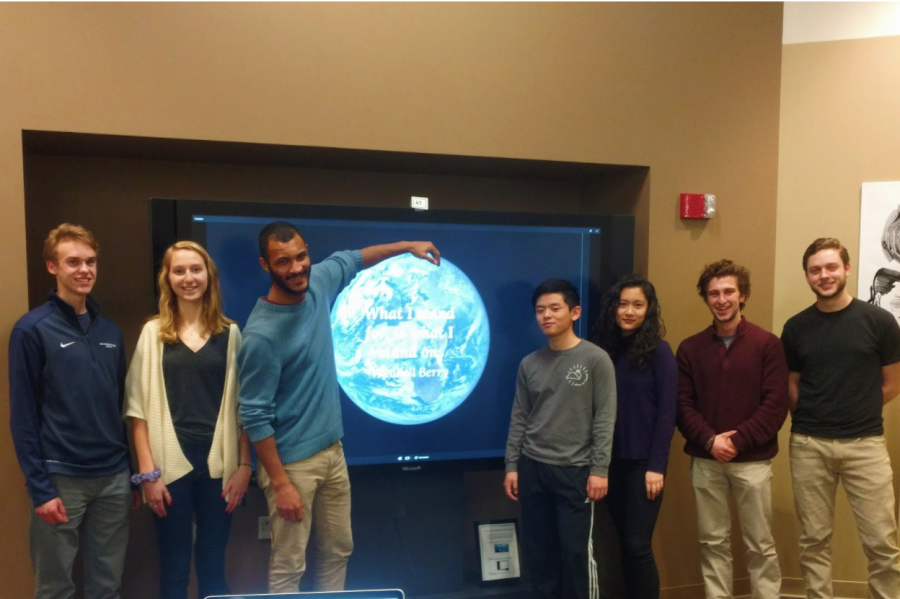Editorial: Plant the SEED for a greener future
Courtesy, Student Sustainability Council
Participants of SEED are dedicated to making environmentally smart decisions on our campus.
Thanks to Student Sustainability Council (SSC), student organizations are about to get a lot more green.
SSC’s new program, Students Encouraging Environmental Dedication (SEED), is a system designed to succeed. SEED, which aims to help student organizations become more environmentally friendly, uses a point system to award organizations for various steps taken toward sustainable practices. Some of the categories in the point system include “Recycling and Waste Treatment” and “Transportation.” Depending on how many points an organization earns each semester, it will be given a certain certification level.
We think that SEED has done an excellent job of taking control of green habits on our campus. Too often, efforts to promote sustainability are based on passive promotion rather than action. We’ve all seen advertisements telling us to recycle, but we’re not sure how effective this type of promotion is in actually changing behavior.
SEED differs from these sorts of efforts in that it actually lays out a clear action plan with incentives for getting students on our campus to make environmentally friendly changes. In addition to the certification levels that organizations can obtain, the program also gives subsidies to organizations for adopting sustainable practices. This can potentially help organizations fund their events. For example, if an organization participating in SEED uses renewable silverware at event, they have the opportunity to receive a subsidy.
With these incentives, organizations have more to gain from joining SEED than by choosing not to participate. Of course, incentives aren’t the only reason why student groups should join SEED. We are all responsible for protecting and caring for our environment. Thanks to SSC, organizations will have no trouble accessing the education and resources they need to improve their sustainability practices.
We think that SEED is an excellent first step toward making impactful changes to help our environment. If one person makes an environmentally conscious choice, it doesn’t make a significant difference. But if several organizations with 10 to 20 (or more) members start actively working to make smart decisions, the net effect on our damaged environment will be much greater.
We also hope that SEED will achieve its goal of making sustainable practices the norm on our campus. The more people participate in and promote environmentally smart habits, the more routine it will become, both for individuals and for organizations. Again, this goal reflects the program’s focus on action: By actively changing the culture of our campus, we will have positive effects that will last long after SEED’s original developers have graduated.
Together, as a campus, we can work toward uniting organizations under a common goal. SEED provides a framework for making this goal measurable and achievable. We encourage all student organizations to consider joining the program. In doing so, you’ll be part of a positive change on our campus and on our planet.


